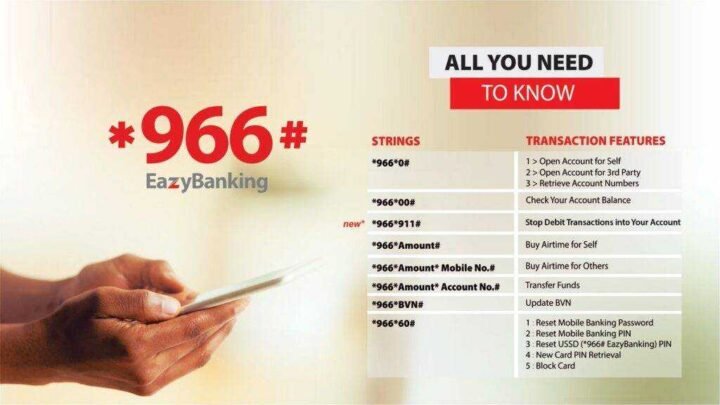Last updated on November 19, 2024
How to get approved for a car loan? To qualify for a car loan, there are a few different factors to consider. While good credit can help, there are other criteria that lenders consider when determining whether to approve your application. Here’s what you need to know about how to get approved for a car loan.
1. Make Sure You Have Good Credit To Get Approved For A Car Loan
Having a good credit score is essential if you want to get approved for a car loan with decent terms. What credit score do you need to get approved for a car? In general, a good FICO® score ranges from 670 to 739, and a higher score is even better.
Auto lenders usually use the FICO 8 or FICO Auto Score models to determine your score. However, keep in mind that creditors can use your initials to determine what they like or don’t like. But if your credit score is at least in the good range, you have a relatively good chance of being approved.
Also, keep in mind that lenders may choose to approve you for a car loan even if you have a less than ideal credit score. But they may charge a higher interest rate or require a guarantor with strong, established credit. Some lenders specialize in working with people with bad credit scores, but these loans can be expensive, so it’s a good idea to improve your score before applying.
2. Have A Source Of Income To Get Approved For A Car Loan
Having a steady income is important to car borrowers because it makes you more likely to make your monthly payments. Depending on the lender and your employment situation, you may be required to provide one or more forms of documentation.
For example, if you are a W-2 employee, a recent payslip or W-2 form will suffice. If you are self-employed or receive Social Security or other similar forms of income, you may be required to provide bank statements.
Talk to the lender early in the process to discuss your situation and find out what documents you need to avoid prolonging the process.
3. Determine how much you can borrow and what you can afford
You need to know what type of car you plan to buy when looking for your loan. You should also consider the following factors:
The monthly payment. How much can you pay per month?
How much can you put down? The general rule is a 20% deposit on a car. The more money you can put in upfront, the lower your monthly payment will be.
How long do you need a loan? Longer loans can reduce the amount you owe each month, but they can leave you “upside-down” with your loan, a situation where the amount owed on your loan exceeds the value of the car. Cars are notorious for depreciating or depreciating significantly over time. Opt for a loan of 60 months or less to avoid a reverse loan. If your loan is too long, consider choosing a cheaper car, making a larger down payment, or paying more each month.
4. Choose Some Lenders You Like
Once you know how much you can afford and your credit score, start looking for a lender. Some options are:
- Credit unions. These local institutions often offer lower interest rates than the major banks. You must join and membership is usually tied to things like geographic location or an employer.
- Banks. Most banks also provide loans such as car loans. Banks with which you already have a relationship can offer favorable rates. However, car loans from much larger banks often start at a higher interest rate than credit unions.
- Online creditors. Several banks and online lenders offer car loans. While they can sometimes offer lower rates because they have no overheads, there is no physical office to visit.
5. Be Able To Prove Your Identity And Place Of Residence?
If you get a loan from the bank or credit union you use regularly, you may not need to provide this information. However, if you are working with a lender for the first time, you may be required to provide a government-issued ID and proof of residency.
This is mainly because the lender wants to know where the car will be parked in case you don’t pay the payments and need to take the vehicle back.
Again, requirements can vary by lender, but generally, a driver’s license or other government-issued ID with your current address can do both. If you don’t have this, you can also provide a utility bill, rental agreement, or bank statement with your address to prove your residence.
6. Consider Getting Pre-Approved
The pre-approval process for auto loans allows a lender to perform a smooth credit check and review your credit report to determine your chances of being approved and what interest rates and other terms you may qualify for. If a lender doesn’t pre-approve you, know not to waste your time applying.
Being a smooth credit check, pre-approved will not hurt your credit score. If you go through the process with multiple lenders, you can also compare different lenders to see which one gives you the best loan terms.
However, keep in mind that not all auto lenders offer pre-approval. Also, some may require you to have a specific car in mind while others cannot.
7. Compare Your Pre-Approval Offers
Once you get pre-approval, you have 14 days to collect as many as you want without multiple credit applications appearing on your credit report – they all appear as one. A tough question gives the lender a complete picture of your credit history, but it can negatively affect your credit score.
Pre-approvals are usually valid for 30 or 60 days, depending on the lender. Compare your pre-approval offers to find the offer that best fits your monthly budget, with the lowest APR and shortest duration.
8. Have a Down payment or Trade in
By making a down payment or trade-in your current car, you can borrow less and get approval more easily with a lower interest rate. Here’s what you need to know about each option.
Down Payment
A down payment is a money you give to the dealer or seller to cover a portion of the vehicle’s sale price. Lenders tend to view borrowers with down payments more favorably because this means they play a role and are less likely to default.
Because a down payment reduces how much you need to borrow, it also lowers your monthly payment and the total amount you pay in interest.
Trade-in
A trade-in is any vehicle of value that you offer to a dealer in exchange for credit to cover the retail price of the car you buy. For example, if you buy a $15,000 car and trade-in your current car for $8,000, you only need to borrow $7,000 for the new vehicle, i.e. if you don’t have a loan for the original car that you have to pay.
If you owe more for the car than what the dealer offers to trade it in, you’ll have what’s called negative equity and must immediately pay the difference to your creditor when you sell the car.
Trading in a car is convenient, but usually, it won’t help you much if you would sell it to a private individual. If you don’t have the time to sell the car yourself and don’t have negative equity, the convenience may be worth it.
9. Understanding How Dealer Financing Works
If you’re working with a reseller, it’s important to understand how they handle the financing process. Many resellers contact multiple lenders at once to get quotes to share with you. Be sure to ask to see all quotes rather than just the one the dealer recommends.
Some dealers even offer special financing programs for borrowers sponsored by the automaker. These offers often require you to have excellent credit and agree to specific terms.
10. Qualifying For A Bad Credit Car Loan
You don’t need good credit to get a car loan. Several auto lenders specialize in working with bad credit borrowers.
To get a bad credit car loan, take the time to find lenders that offer pre-approval and can offer relatively decent terms. Also, try to have a good down payment or trade value to reduce the amount you need to borrow.
Finally, consider getting a guarantor who has a lot of credit and can help you qualify for a better car loan. Keep in mind that your guarantor is equally responsible for paying off the loan if you don’t, so it could ruin your credit history if you’re not careful.
11. Prepare Your Documents
There are some documents required for a car loan, including:
- 100 Identification Points: This can be a driver’s license, passport, birth certificate, Medicare card.
- Proof of Income: You must provide two or three of your most recent pay stubs, as well as proof of employment and your employer details. If you are self-employed, you must file an income tax return for two years.
- Vehicle Details: You must provide the make, model, license plate, and price of the vehicle, as well as whether it is new or used.
- Assets and Liabilities: The lender needs to know if you own any property, other vehicles, other loans, your expenses, and any other debts.





